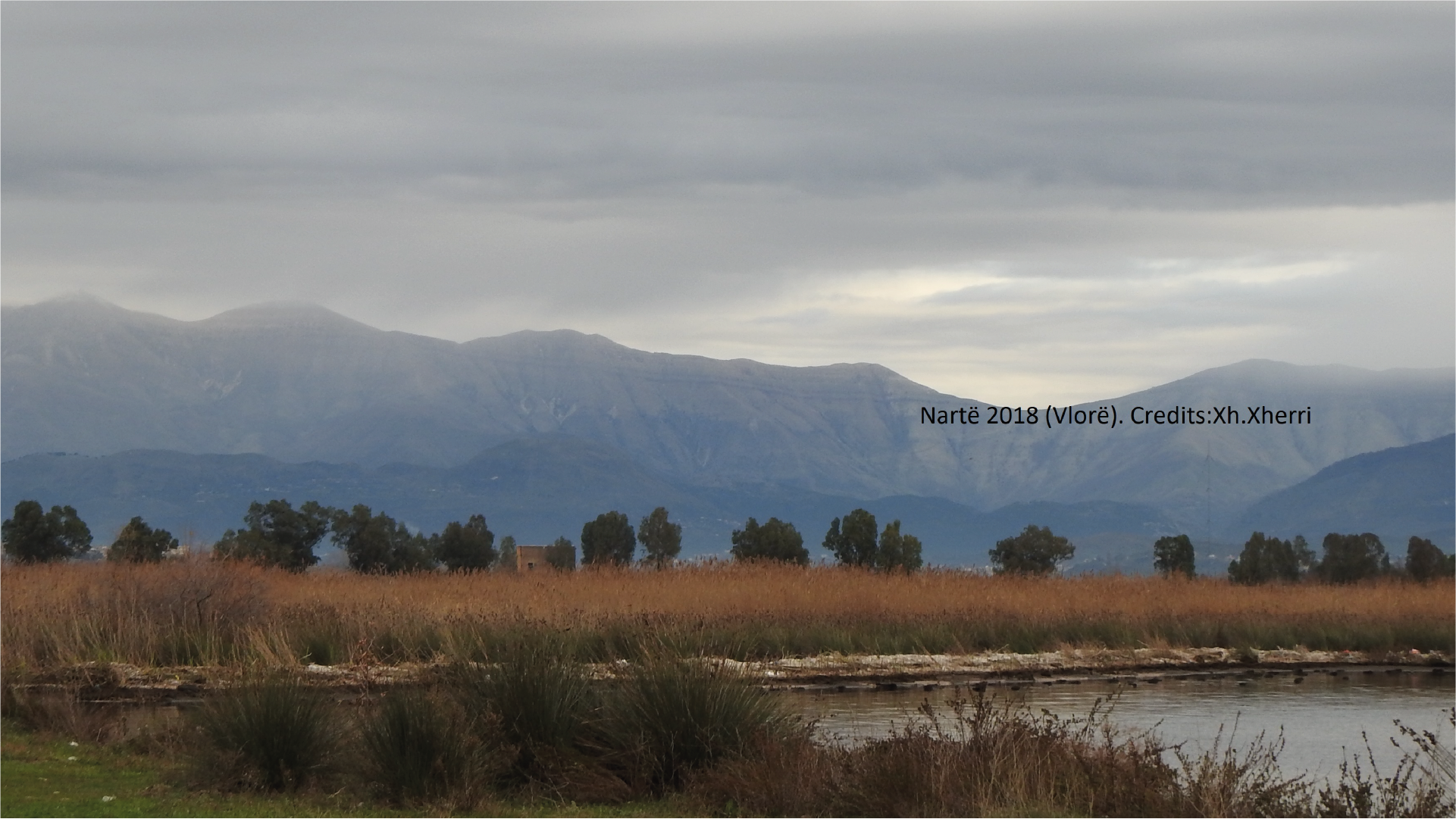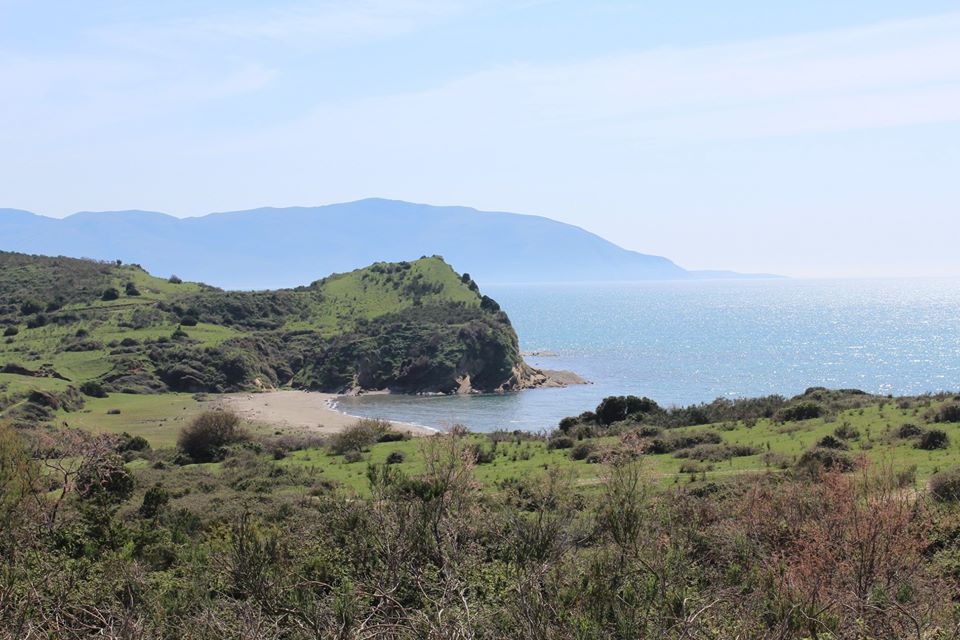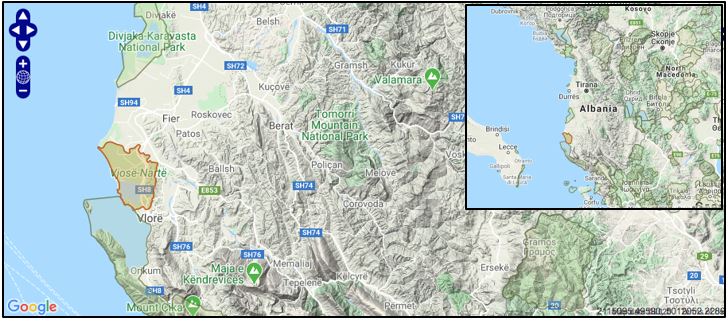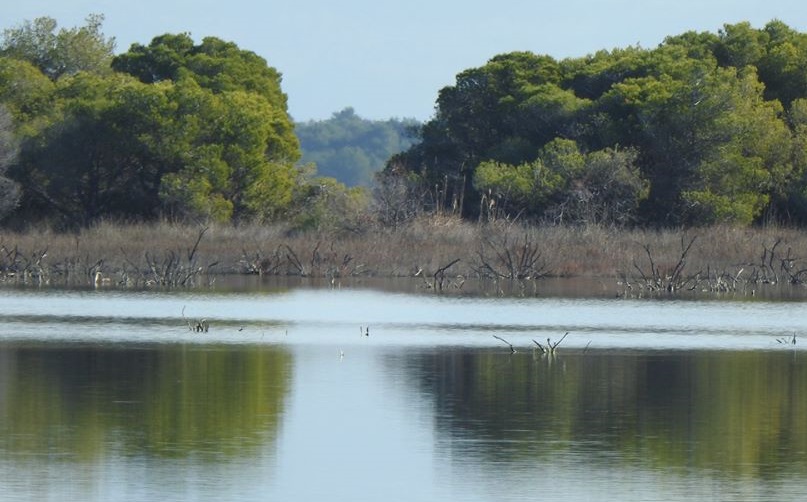
PAVING THE WAY TOWARDS A SUSTAINABLE NATURA 2000 NETWORK IN ALBANIA: THE CASE OF NARTË-PISHË-PORO COMPLEX SITE
How to better protect the pristine natural beauty and one of the most important nature niches in Albania and internationally, Narta and Pishë-Poro natural complex?
The increase and the push forward of the protection status of the area applying the highest European standards for nature protection to this natural complex with paramount importance. In this spirit, this project was crafted from the Protection and Preservation of Natural Environment in Albania (PPNEA).
Project name: Paving the Way Towards a Sustainable Natura 2000 Network in Albania: the Case of Nartë-Pishë-Poro Complex Site
Location of project implementation: Albania, Vlorë and Fier region, Nartë-Pishë-Poro
Period of project implementation: October 2019 – March 2021

Nartë 2016 (Vlorë). Credits: R.Lleshi
Description
The project focuses on the field of nature protection by promoting sustainable development and the protection of the natural environment for present and future generations. It integrates within the so-called ‘Stabilisation and Association process’ for the adoption, implementation and enforcement of all EU rules, known as aquis that Albania is undergoing (European Union, 2016).
Inside aquis this project fits under chapter 27 (Environment and Climate change) for promotion of EU environment policy towards the sustainable development and environmental protection currently and in the future. The projects aim to provide a thorough research study on Natura 2000 site designation (Habitats Directive). The research will define site borders in an eco-participatory approach, identify and map the European habitats of the site as a pre-requisite of EU integration in nature protection standards, and open the dialogue with the administration of the Ministry of Tourism and Environment of Albania. It is a concrete example of how the obligations from the Habitat Directive are implemented and how they affect the lives of citizens. This action is “a must-do” homework for Albania in the EU integration path. It is considered one of the hardest exercises which require capacities, but above all, the right understanding and attitude towards the process. The outcome of this project in the form of site maps and other accompanying documents will be delivered to the responsible state institutions as the sole bodies formalising the Natura 2000 designation process.
The proposed Nartë – Pishë Poro complex site is composed of Vjosa-Narta Protected Landscape (Regional adminsitrate of Protected Areas, RaPA-Vlora) and Pishë-Poro Natural Park (Regional adminsitrate of Protected Areas Fier, RaPA-Fier). The Inter-institutional cooperation at the national, regional and local level is an obligation that the project focuses on specifically.
The International Union for Conservation of Nature (IUCN) already lists the Vjosa-Narta Protected Landscape as an Important Bird (IBA) and Plant Area (IPA) (BirdLife International, 2020 & Plantlife 2019). Narta lagoon is an essential site for wintering and migratory waterfowl, especially the Dalmatian pelican (Pelecanus crispus) or the breeding of the Little ern (Sternula albifrons), Pied avocet (Recuvirostra avosetta) or the Kentish plover (Charadius alexandrinus) among around 65 possible breeding birds (Mladenov et al 2016). It is composed of various kinds of habitats, including pine and riverine forests, freshwater wetlands, salt marshlands, shrubs and sandy dunes. It shelters a high diversity of flora and fauna species. Pishë Poro Natural Park is one of the most important estuaries, where dunes meet the stated country (to 4 m in height). The vegetation is composed of typical groups of marine wetlands; as well as Mediterranean pine forests. This natural complex is rich also in cultural values and encompasses 11 villages with a total population of around 8000 local inhabitants, among which Greek minorities community. The main incomes for local people rely on the use of natural resources: tourism services and infrastructures, agriculture, pastoralism, fishing, salt production etc. When the area will be designated and managed as a Natura 2000 site, all local activities dynamics will change and directly obey EU rules and standards. Generally, people do not perceive these changes so close and direct to their lives, for which if caught unprepared and not being made part of the process, high conflicts may raise which will hamper the preservation of the site and threaten the existing harmony between people and nature in the area. Therefore, a thorough and truthful communication and explanation of what the new protection status of Natura2000 means is of crucial importance and one of the core activities of the project.

Figure 3. Vjosa-Narta Important Bird Area (IBA). Adapted from BirdLife 2020. (c) Google maps
“Paving the way towards a sustainable Natura 2000 network in Albania: the case of Nartë-Pishë-Poro complex site” project is designed in line with national and regional development framework priorities, with the identified needs during national planning and by addressing specific needs of the target groups. As such the action addresses the following specific problems: a) lack of identification and mapping of Natura 2000 sites b) conflict generation in N2000 site designation, c) lack of local participation in natural resources management, d) lack of inter-sectoral and cross-institutional collaboration for nature conservation issues, e) lack of advanced research applications specifically for N2000 designation and for nature conservation initiatives in general. All these problems will be addressed within the activities planned as part of the project.
There are diverse, active donors and institutions in the country with a focus on environmental and nature protection but aiming at policy design and institutional strengthening to get Albania prepared towards EU Integration. Meanwhile, some of the most significant implemented programs focus on climate change mitigation and adaptation, integrated biodiversity protection in different sectors, and capacity building for better financial planning of protected areas. The proposed action focuses on direct and concrete implementation by serving the philosophy of other projects. By providing sound and essential data under Natura 2000 principles, it helps in the continuity of different initiatives and synergise actions.

Pishë-Poro 2020 (Fier). Credits R.Lleshi
Six main target groups have been identified to have implications with the implementation of the described project. The target groups are listed below:
- Government of Albania
- Local Government
- NGOs
- Universities
- Business
- Local inhabitants
Disclaimer
‘This project runs through the financial support of the European Union. Its contents are the sole responsibility of the implementing body and do not necessarily reflect the views of the European Union’